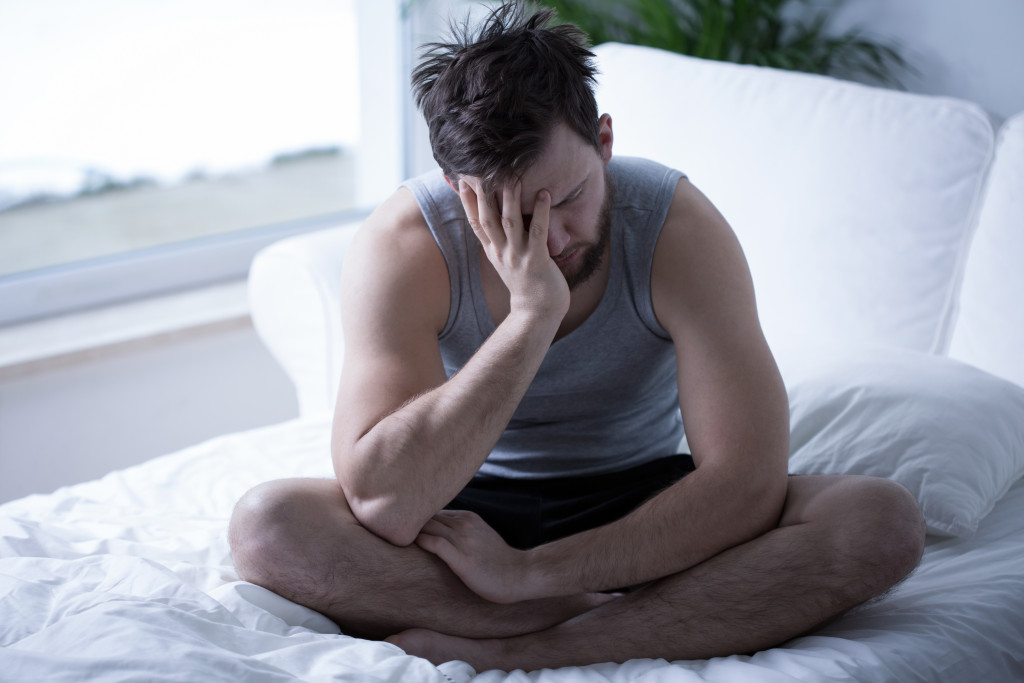• Lack of quality sleep, insufficient exercise, and sleep disorders such as sleep apnea can cause fatigue when waking up.
• Using electronic devices before bedtime can disrupt the body’s natural circadian rhythm and make it difficult to sleep.
• If you don’t exercise regularly, your body may be too sedentary to get the energy it needs in the morning.
• Your mattress can also affect how well you sleep and how much energy you have the next day.
• To help improve your quality of sleep, try to stick to a regular sleep routine.
Have you ever woken up in the morning feeling exhausted, despite having had a full night of sleep? If so, you’ve probably asked yourself why you feel tired after waking up. Here are some of the most common reasons people experience fatigue when getting out of bed.
Possible Reasons for Feeling Tired After Waking Up
If you’re sure you got enough sleep, other factors could contribute to your fatigue. Here are some possible explanations:
Lack of Quality Sleep
One of the most common causes of morning fatigue is a lack of quality sleep. It’s not just about how many hours you got that night—it’s about how restful those hours were. Poor sleep quality can be caused by anything from stress to overstimulation from electronics like phones and TVs before bedtime. This is because these devices emit blue light, disrupting the body’s natural circadian rhythm and making it harder to get into a deep sleep.
Not Enough Exercise
If you’re not getting regular exercise, your body may be too sedentary to get the energy it needs in the morning. Not enough exercise also causes a lack of enough oxygen to the brain, resulting in fatigue. Also, if you don’t have enough physical activity during the day, your body will be more tired when it’s time to go to bed, making it harder for your muscles and brain to relax.

Sleep Apnea or Other Sleep Disorders
Sleep apnea is when breathing stops and starts throughout the night due to blocked airways, leading to fragmented and poor-quality sleep. This is caused by issues like narrow airways or an enlarged tongue. Other sleep disorders, like restless leg syndrome or narcolepsy, can also lead to fatigue due to the disruption of the natural sleep cycle. Additionally, insomnia can also disrupt healthy sleep patterns, resulting in daytime fatigue even after eight hours in bed.
Your Mattress
Yes, your mattress can affect how well you sleep and how much energy you have the next day. If your mattress is too soft, it can cause your body to become stiff and uncomfortable, leading to a restless night’s sleep. On the other hand, a mattress that is too firm can cause pressure points on your body, making it difficult to get into a deep sleep. This is why aside from fatigue, you also experience headaches and back pain when you wake up.
Tips to Feel More Rested in the Morning
If you experience one or all of the above, here are a few tips to help you feel more rested in the morning:
Set a Regular Sleep Routine
Try to go to bed and wake up at the same time every day. This will help your body adjust to a regular sleep routine, so it’s easier for you to fall asleep and stay asleep through the night. Avoid using electronics or having heavy meals in the evenings, as this can disrupt your circadian rhythm and make it harder to get to sleep. A routine also allows you to get into a deeper, more restful sleep when you go to bed.
Get Regular Physical Activity
It doesn’t have to be just going to the gym. Regular physical activity includes anything from walking to doing light stretches or yoga. Exercise helps your body relax and get more oxygen, so it’s better equipped to take on the day. Aim for at least 30 minutes of physical activity each day.
Change Your Mattress
It may be time for a new mattress if you still feel uncomfortable after waking up. Look for one that contours your body and provides the right support for your back and neck. Use a memory foam mattress for extra cushioning and comfort. Memory foam mattresses use heat-sensitive material that molds to your body shape, providing extra support where you need it most and giving you a better night’s sleep.

Additional Tips to Get a Good Night’s Sleep
Other tips to help you get a good night’s sleep include the following:
- Avoid caffeine and alcohol close to bedtime
- Keep your bedroom dark, quiet and cool
- If you can’t sleep, try reading or listening to soothing music
- Take a hot bath or shower before bed
- Avoid naps late in the day
- Don’t eat a large meal before going to bed
It’s important to take the time to find out why you’re feeling tired after waking up so that you can adjust your lifestyle and make sure you’re getting the restful sleep your body needs. With these tips, you should feel more energized in no time!
